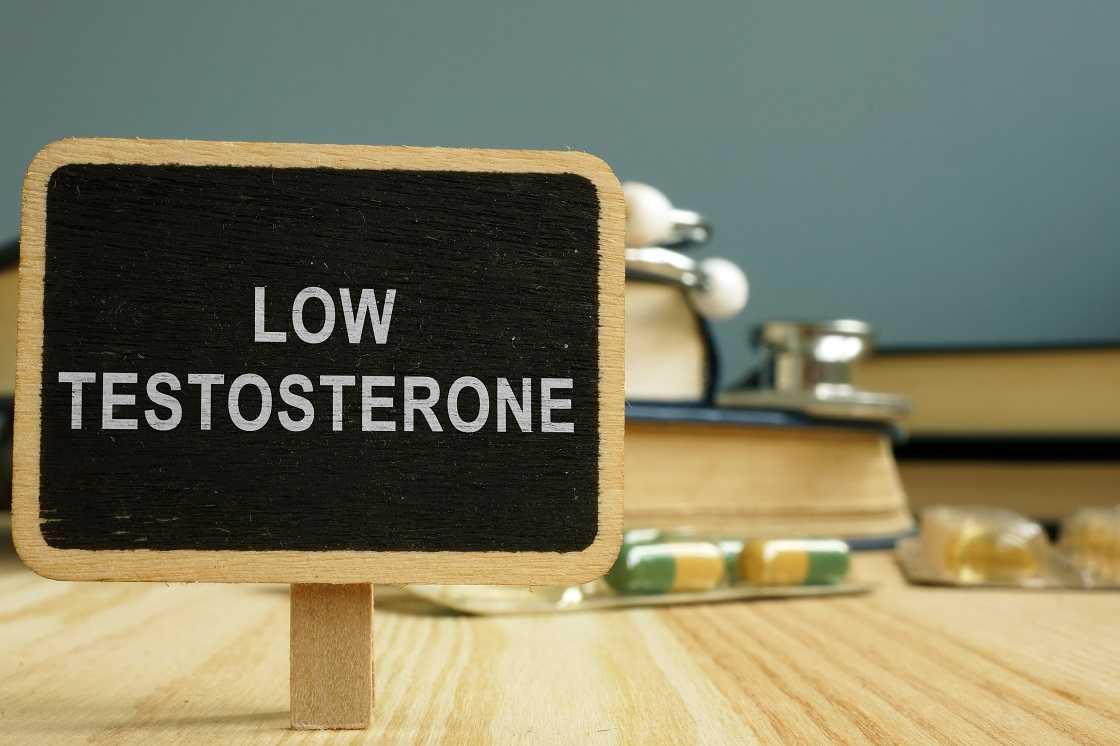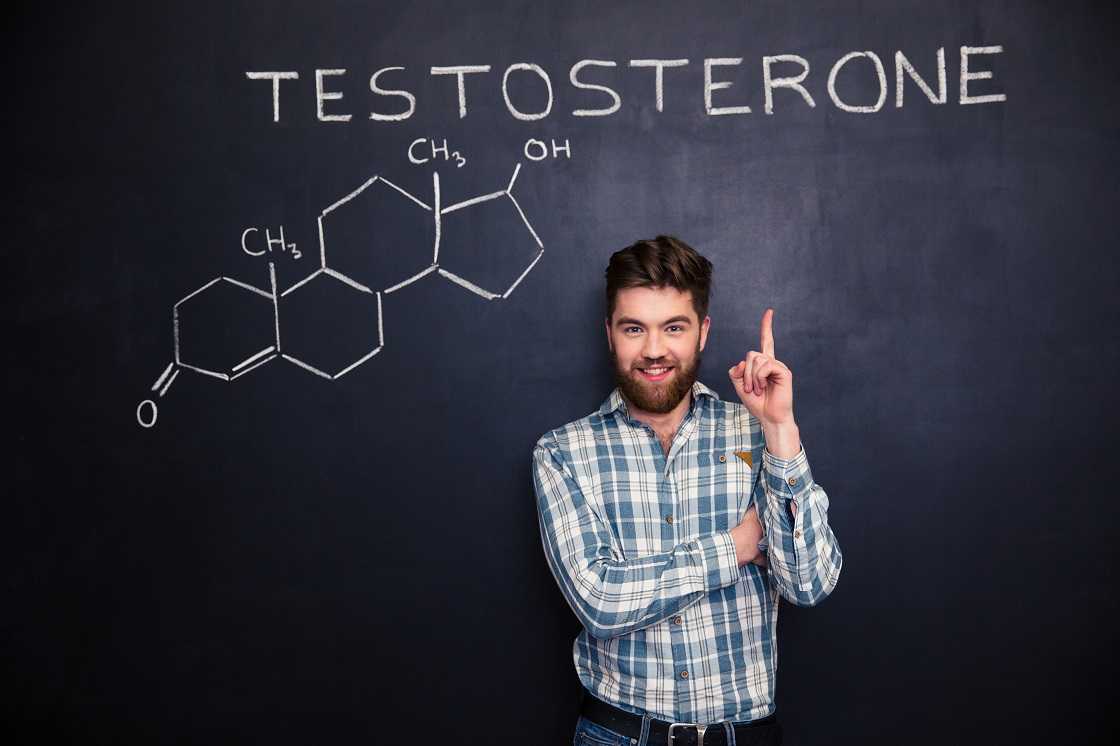Testosterone is a sex hormone usually related to men, although women have small amounts. If a man has a low testosterone level (Low T), there may be symptoms such as erectile dysfunction, reduced bone mass, and sex drive.
Low testosterone is a health problem that frequently appears in older men in their 40s. The symptoms of its decline are varied, from weight gain to cognitive problems, and many chronic diseases and health situations can cause it.
However, testosterone deficiency in men has several consequences in different physiological processes, not only sexual. Learn below the different causes and how to reverse them.
What is testosterone?
Testosterone is a steroid sex hormone that belongs to the group of androgens. In women, it is found in very low concentrations unlike men (10 times more than women), but those low concentrations are essential to maintain hormonal balance and overall health.
It is found in low concentrations in women as opposed to men (10 times more than in women), but these low concentrations are essential to maintain hormonal balance and overall health.
Testosterone is derived from cholesterol, so it is also considered an androgen. Other hormones in the androgen group are dehydroepiandrosterone sulfate (DHEAS), dehydroepiandrosterone (DHEA), androstenedione, and dihydrotestosterone (DHT). However, DHEAS, DHEA, and androstenedione are hormone precursors, so they need conversion to testosterone and DHT to express their effects.
Testosterone production
In males, about 95% of testosterone is produced by Leydig cells in the testes. This process is known as steroidogenesis and is tightly regulated by the hypothalamus and pituitary gland through another hormone called LH.
Once released into the blood, testosterone travels through the bloodstream bound to other proteins: sex hormone binding globulin (SHBG) and albumin. On the other hand, a small amount of testosterone remains free and ready to carry out all of its functions.
Testosterone functions in men
Testosterone has many functions even before birth. It takes on at 11-13 years with the onset of puberty when its production increases.
This hormone plays a key role in the development of the male reproductive system and the development of secondary sexual characteristics, promoting:
- The development and growth of the penis, testicles, scrotum, and sexual secretory glands.
- The appearance of beard and body hair, deepening of the voice, and growth of Adam’s apple or cricoid cartilage.
- Stimulates sperm production and thus the development of male fertility.
- Develops bone growth and prevents osteoporosis.
- Promotes the increase of muscle mass and strength.
- Increases libido or sexual desire.
Why does testosterone decrease?
As the years go by, the testicles decrease their ability to produce testosterone, so we could say that aging is the principal cause of hypogonadism (low testosterone levels). In fact, after the age of 30-40, men lose up to 0.4-2% of testosterone annually.
Other common causes may be the use of certain drugs and diseases, such as tobacco consumption, cancer treatment, and hormonal disorders. The following is a list of causes that can lead to low testosterone:
- Certain medications, such as opioid painkillers.
- An injury (trauma, castration) or testicular infection.
- Chronic diseases, such as liver and kidney disease, obesity, type I diabetes, and HIV/AIDS.
- Genetic disorders (Klinefelter syndrome, hemochromatosis, Kallmann syndrome, Prader-Willi syndrome, and myotonic dystrophy).
- Past use of anabolic steroids.
Symptoms of low testosterone
To understand the symptoms, we must review where testosterone acts.
Recall that this hormone plays a significant role in the development of the male reproductive system and the development of secondary sexual characteristics, as well as in adult sexual function and maintenance of virility. Then, a decrease in their levels will produce:
- Trouble maintaining an erection
- Lack of sexual desire
- Low sperm count (oligozoospermia)
- Decreased strength and loss of muscle mass
- Fat accumulation and breast enlargement
- Decreased bone density and osteoporosis
- Lack of energy and onset of fatigue
Other consequences of low testosterone in men are:
- Anemia
Men may experience a decrease in red blood cell count and suffer from anemia.
- Hair loss and body hair loss
Since hair growth is influenced by androgens, men with low testosterone may also experience loss of body hair.
- Reduction in testicular size
A man with low testosterone may notice a reduction in the size of his testicles not related to cold temperatures. As well, the scrotum may feel softer than usual.
- Hot flashes
Although hot flashes are often thought to be exclusive to women at menopause, they can also occur in men.
- Mood swings
Low testosterone can also influence your mood, leading to depression, sadness, and problems focusing.
Is low testosterone treatable?
Hormone replacement therapy is a proven effective treatment consisting of using external sexual hormones, in this case, testosterone.
Hormone replacement therapy provides several benefits in men with symptoms of hypogonadism or sexual dysfunction resulting from low testosterone. The main goal is to improve or decrease the signs and symptoms affecting every patient’s quality of life while balancing hormone levels and restoring body control.
This therapy may also be ideal for those with deficiencies in sex hormone production for reasons other than age. However, a physician must suggest a medical evaluation in any of the cases.
Types of testosterone replacement therapy
There are several methods for TRT, including:
- Skin patches
They consist of transdermal patches that gradually release testosterone through the skin.
- Gels
Testosterone supplementation includes topical creams and gels, which are generally administered once daily and can be conveniently applied under the armpit, on the shoulder, or the abdomen, depending on the particular presentation.
- Tablets that dissolve in the mouth
Testosterone supplementation in pill form works as with any other supplementation. You should take the pill by mouth like any other, always considering the dosage and intake hours recommended by a specialist.
- Injections
Consists of injecting testosterone into the muscle, although some are short-acting and others are long-acting, up to 8 days. Among them are Cypionate, Enanthate, Propionate, and Testosterone Suspension.
- Tablets that are surgically implanted and release the hormone
Testosterone pellets are rice grain-sized implants containing high levels of testosterone. It is slowly released when placed under the skin in a procedure that takes about five minutes on an outpatient basis.
What are the benefits of TRT?
Hormonal balance is essential to keep a dynamic life regardless of age. When you start testosterone replacement therapy, you will automatically recover your virility and strength. Among the benefits of considering the therapy are:
- Increased libido and sex drive
- Better red blood cell count
- More muscle mass and, ultimately, strength
- Recover bone density
- Less fracture risk
- Better mood
- No sleeping problems or anxiety
- Better recovery time after working out
When to consult a doctor?
If you become familiar with one or more symptoms of low testosterone, consult your healthcare provider as soon as possible. Take into account that you must go through a rigorous medical examination and screening blood tests to get the therapy that is right for you.
Taking testosterone supplementation indiscriminately and without supervision can cause health problems, such as high blood pressure, or increase the risk of prostate cancer, a type of cancer that affects the testicles, especially in men in their 40s.
Testosterone is used only for men with low testosterone levels caused by certain medical conditions, including testicles, the pituitary gland (a small gland in the brain), or hypothalamus disorders (a part of the brain) that cause hypogonadism.
Testosterone should not be used as a treatment in men who have had prostate cancer or are at risk for prostate cancer, nor should it be used in men who currently have prostate cancer.
If you’re interested in learning more about Testosterone Replacement Therapy or have any further questions, schedule an appointment at HRT Doctors Group. Our team of experienced doctors is available for consultation via phone or video call, so you won’t have to spend time in a waiting room. Let us help you make a smart decision!
Questions and Answers
The primary cause is the natural decline in testosterone production as men age, typically starting around the age of 30 and decreasing by about 1% per year.
Yes, chronic illnesses such as diabetes, kidney disease, and liver disease can interfere with testosterone production and lead to low levels.
Excess body fat, particularly abdominal fat, can convert testosterone into estrogen, lowering overall testosterone levels in the body.
Yes, chronic stress increases cortisol levels, which can suppress testosterone production.
Yes, medications like opioids, glucocorticoids, and some antidepressants can negatively affect testosterone production.
Physical damage to the testicles can impair their ability to produce testosterone, leading to low levels.
Yes, the pituitary gland regulates testosterone production, and disorders like tumors or hormonal imbalances can disrupt its function.
Chronic and excessive alcohol use can impair testosterone production by damaging the testes and altering hormone balance.
Yes, genetic conditions such as Klinefelter syndrome and hemochromatosis can lead to reduced testosterone levels.
Yes, infections like mumps orchitis can damage the testicles and reduce their ability to produce testosterone.

